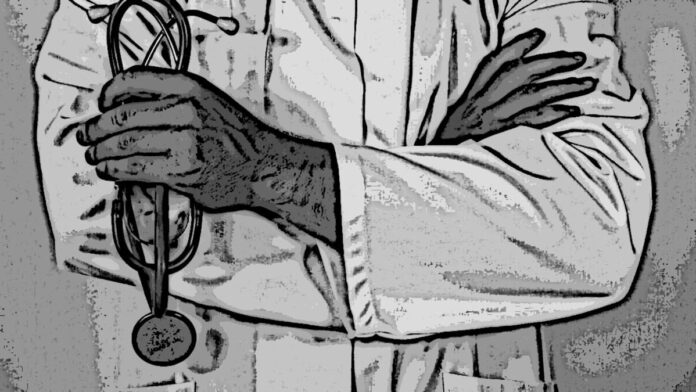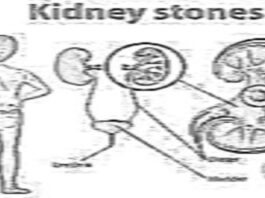Understanding Pancreatic Cancer
What Causes Pancreatic Cancer?
How to cure pancreatic cancer, Before we look at how to cure pancreatic cancer, let’s look at how pancreatic cancer is caused. Pancreatic cancer occurs when cells in the pancreas grow out of control, The pancreas is a small organ located behind the stomach and plays a crucial role in digestion and blood sugar regulation. While it may not be as widely discussed as some other cancers, pancreatic cancer is known for being particularly aggressive and difficult to diagnose at an early stage.
There isn’t a single cause of pancreatic cancer, but several risk factors have been identified that may increase the likelihood of developing the disease. Some of these include:
SMOKING
This is a significant risk factor, with smokers having a higher chance of getting pancreatic cancer compared to non-smokers.
**Obesity**:
Excess body weight can increase the risk, as it is thought that obesity may lead to changes in hormones and insulin production.
**Age**:
Most people diagnosed with pancreatic cancer are over the age of 60, as the disease is more likely to develop as we age.
**Family History**:
Genetics can play a role; those with a family history of pancreatic cancer may be at a higher risk.
It’s essential to remember that having one or more of these risk factors does not guarantee that someone will develop pancreatic cancer, just as not having them does not mean one is safe.
> “Knowledge of these risk factors can help increase awareness and promote early discussions with healthcare providers.”
SIGNS and SYMPTOMS
How to cure pancreatic cancer, Recognizing the signs and symptoms of pancreatic cancer early can be challenging, primarily because they often do not appear until the disease is at an advanced stage. Some common symptoms include:
- 1. Jaundice
A yellowing of the skin and eyes can occur when the cancer blocks the bile duct.
2. Abdominal Pain
Discomfort, especially in the upper abdomen that may radiate to the back is not uncommon.
3. Unexplained Weight Loss
Losing weight without trying can be a warning sign that something isn’t right.
4. Loss of Appetite
A sudden disinterest in eating can be linked to various health issues, including pancreatic cancer.
5. Changes in Stool
Stools may be pale or greasy, often indicating fat malabsorption related to pancreatic issues.
If you notice any underlying symptoms that persist, it’s crucial to reach out to a healthcare professional for evaluate Testing
DIAGNOSIS AND TESTING
If pancreatic cancer is suspected, medical professionals will conduct several tests to confirm the diagnosis:
- Imaging Tests
CT scans, MRI scans, and ultrasounds can help visualize the pancreas and any masses or abnormalities.
2. Blood Tests
Certain enzymes and marker levels, like CA 19-9, may indicate problems with the pancreas.
3. Biopsy
This involves taking a small sample of pancreatic tissue for examination under a microscope to check for cancer cells.
Navigating through these tests can feel overwhelming, but they are vital for obtaining an accurate diagnosis.
THE STAGING of PANCREATIC CANCER
How to cure pancreatic cancer, Once diagnosed, it’s essential to determine the stage of the cancer, which describes how far it has spread. Staging is crucial for developing a treatment plan. The stages of pancreatic cancer are typically categorized as:
- 1. Stage 0: Also known as carcinoma in situ; cancer is confined to the pancreatic duct.-
2. Stage I: The tumor is localized in the pancreas and has not spread.- **Stage II**: The cancer may spread to nearby tissues or lymph nodes.-
3. Stage III: The tumor has spread to major blood vessels and lymph nodes.- **Stage IV**: The cancer has metastasized to distant organs like the liver or lungs.
PERSONAL INSIGHT
I remember the day my friend was diagnosed. We sat together as the doctor explained the staging. It was an emotional rollercoaster as the reality set in, but it also brought a newfound resolve for her to learn as much as possible about her diagnosis, potential treatment options, and how to manage her health.
TREATMENT OPTIONS
Treatment for pancreatic cancer often depends on the stage at which it is diagnosed and the patient’s overall health. The main treatment options include:
- 1. Surgery**: If the cancer is localized, surgery may be an option to remove the tumor. The Whipple procedure is commonly performed for tumors located in the head of the pancreas.
2. Chemotherapy**: This treatment uses drugs to kill cancer cells or stop their growth and is common for both pre- and post-surgery.
3. Radiation Therapy**: High-energy rays target cancer cells and can be combined with chemotherapy to increase effectiveness.
4. Clinical Trials**: These research studies test new treatments and can provide patients access to the latest therapies.
Discussing options with healthcare providers can help patients make informed decisions about their treatment plans.
LIVING WITH PANCREATIC CANCER
Adjusting to a pancreatic cancer diagnosis affects not only the individual but also their loved ones. Support networks can play a crucial role in coping with the emotional and physical challenges. Here are a few ways to foster support:
Join Support Groups**: Connecting with others who are experiencing similar challenges can help.
Counseling**: Professional support can help navigate the emotional impact of the diagnosis.
RAISING AWARENESS
Healthy Lifestyle Choices**: Eating well and staying active as much as possible can improve overall wellbeing, despite treatment.
Pancreatic cancer often gets less attention compared to other types of cancer, which can affect funding and research. Here are a few simple ways to help raise awareness:
+ **Share Information**: Talk with friends and family about pancreatic cancer to spread knowledge.+ **Participate in Events**: Join local or national events that promote pancreatic cancer awareness and research funding.+ **Support Organizations**: Consider donating to or volunteering for pancreatic cancer research organizations.
> “Awareness is a key factor in early diagnosis and improving treatment options.”
CONCLUSION
Pancreatic cancer, while daunting, is a topic worth talking about openly. By understanding the symptoms, risk factors, and treatment options, we can empower ourselves and others to seek help when needed. Friends and family are critical in providing support during this challenging journey. Remember, knowledge and awareness can bridge the gap in healthcare and help catch this stealthy disease earlier, ultimately improving outcomes. If you or someone you know is facing pancreatic cancer, don’t hesitate to reach out—every conversation counts!.



